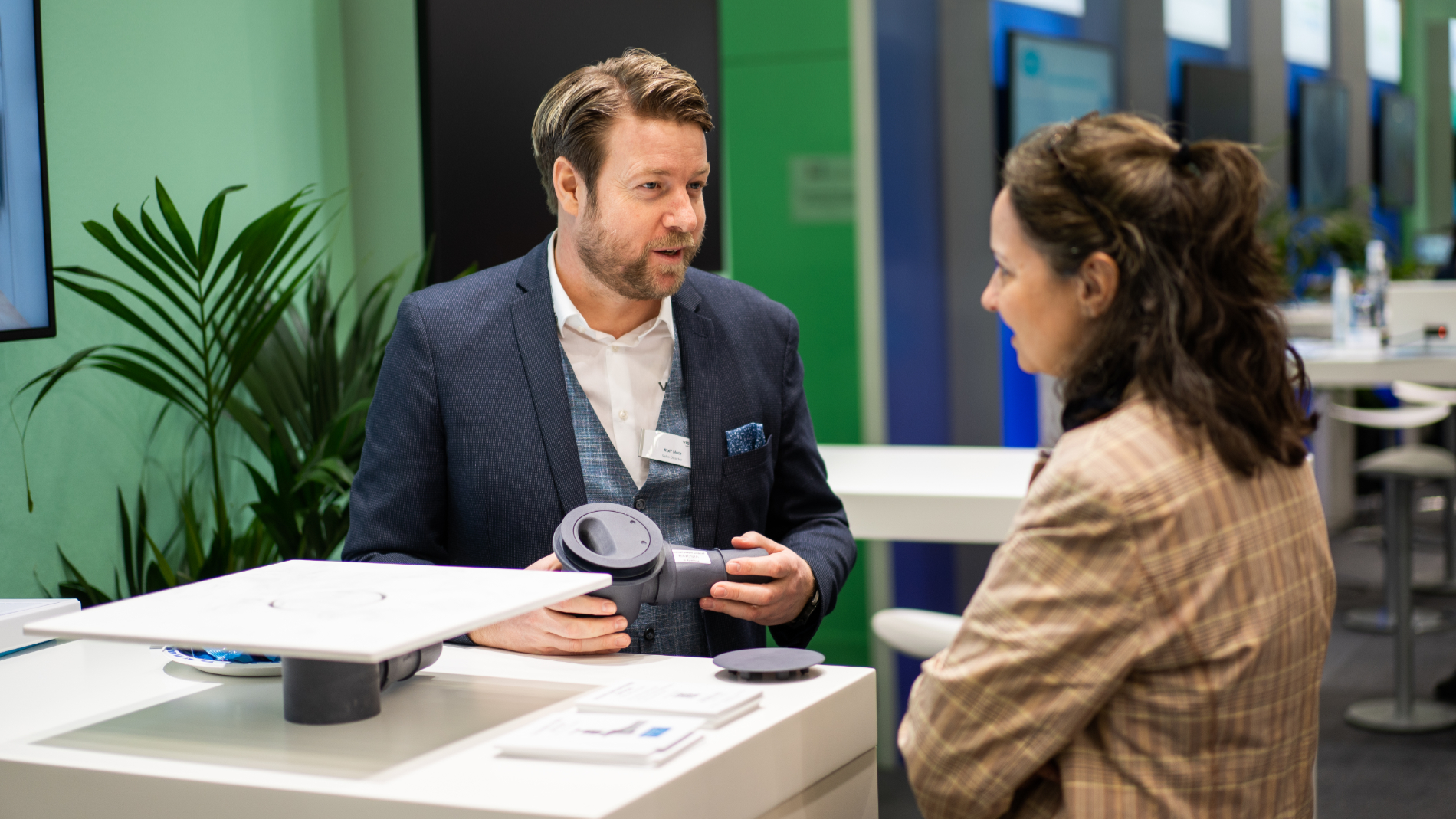Services for a future-oriented sanitary and HVAC sector

From development and contract manufacturing to maintenance and training, specialist services accompany modern sanitary and HVAC products over their entire life cycle. This wide range of services for the sanitary and HVAC sector will be showcased at ISH 2025.
Engineering and prototyping
Engineering services for the sanitary and HVAC sector include product planning, simulation and optimisation. Building Information Modelling (BIM) and digital engineering are now indispensable tools for the holistic, dynamic planning of sanitary and HVAC systems. Using BIM, complex building ecosystems can be simulated precisely in digital models, allowing the potential for optimisation to be identified at an early stage.
Increasingly, prototyping service providers are using 3D printing to test innovative concepts quickly and cost-effectively under realistic conditions. Rapid prototyping processes shorten development times considerably and enable manufacturers to react more quickly to market demands.
Contract manufacturing, quality control and certification
The trend towards smart factories is spawning significant efficiency gains in contract manufacturing because production processes can be improved through the application of IoT technologies and AI. The use of AI and machine learning in quality assurance means that defects can be recognised and rectified at an early stage.
Certification service providers conduct rigorous tests to ensure that new sanitary and HVAC products comply with the safety and quality standards of an increasingly regulated industry. Following global efforts to protect the climate, increasing emphasis is being placed on certificates such as LEED (Leadership in Energy and Environmental Design) and DGNB (German Sustainable Building Council).
Services for logistics and supply-chain management
Well-organised logistics and supply-chain management is essential for smooth operations in the sanitary and HVAC sector while innovative solutions and services for packaging and transporting sanitary and HVAC products not only cut costs but also improve the carbon footprint.
Current trends in this field include the use of AI-aided forecasting analysis and supply-chain visibility technologies that facilitate real-time monitoring across the entire supply chain. Such technologies improve logistical predictability and flexibility, an increasingly important factor in the context of global supply chain issues.
Installation services for smooth commissioning
Professional service providers offer customised installation solutions for both new builds and modernisation projects. With technical expertise and state-of-the-art tools, specialist service providers can ensure that every installation complies not only with the applicable standards but also functions flawlessly.
More and more sanitary and HVAC service providers are using interconnected installation services and digital twins to plan installations more precisely, as well as to monitor them in real time during the construction phase. Digital twins provide a virtual copy of the physical system, which facilitates optimum commissioning and predictive maintenance.
After-sales service: maintenance and servicing
Maintaining and servicing sanitary and HVAC systems are key to ensuring the longevity and efficiency of the technology installed. Regular maintenance work can minimise downtimes and reduce operating costs. After-sales service is crucial to retaining customers and ensuring satisfaction in the long run. Service providers also offer repair services that respond quickly and efficiently in the event of malfunctions, to ensure downtimes are kept to a minimum.
Sanitary and HVAC systems can be continuously monitored with the aid of sensors and IoT technologies, and potential problems identified before they lead to outages. Predictive maintenance reduces unplanned downtime and cuts operating costs even further. There is also a trend for service providers to offer customers service contracts with guaranteed response times and thereby improve customer service.
Knowledge transfer through training and support
Many service providers offer on-site technical support for complex installations or when it comes to commissioning sanitary and HVAC systems. In addition, digitalisation has also resulted in an increase in e-learning platforms and virtual training environments in the sanitary and HVAC sector, which permit flexible and location-independent qualification and further training. In the context of networked sanitary and HVAC systems, subjects such as cybersecurity and data management are increasingly becoming the focus of further training programmes.
